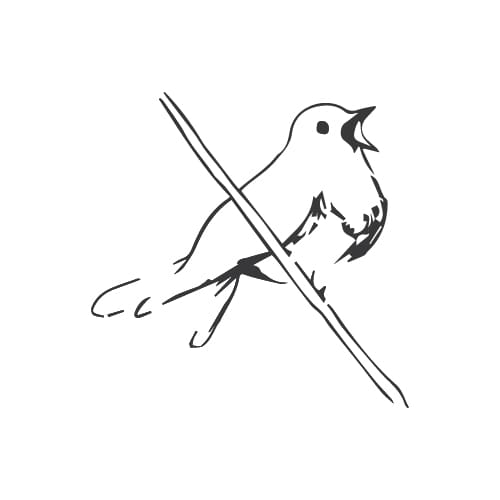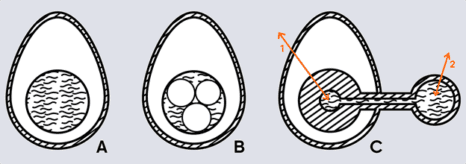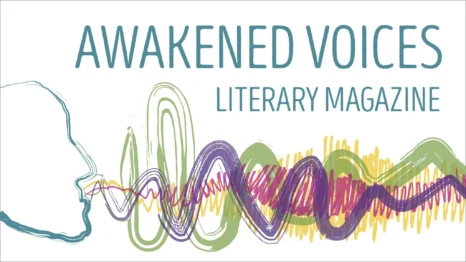The Word Rape is Made of Tar
- Nightingale, Nilsa Rivera
In this examination of the the word “rape,” Nilsa Rivera encourages her readers to think deeply about how the intricacies of language can affect us. By analyzing each sound and letter to break down her associations with the word, Rivera helps readers understand how the history of our words connects to and triggers memories of our own experiences. 
The Word Rape is Made of Tar
by Nilsa Rivera
I realized that the word, Rape was throwing me off every time I glanced at it while revising the rape scene in my memoir. Every time I read the word, my fingers paused on the keyboard, and rested as if my hands were tired of typing after only twenty minutes. A small tingling sensation from my laptop ran in the muscles and joints of my wrists. The word Rape demanded my attention and stillness. I stopped and focused for a few seconds on self-awareness and effort before I began typing again. Then I wondered why one scene, one word in the whole eighty-thousand-word manuscript that isn’t based on the story of my assault affected me so much. Other scenes, I presumed, had deeper impact in my life.
It’s not the word’s heavy meaning and its connection to the pain it has caused that startled me. That I am used to. I mean the sight of the word, the visual, almost physical, three-dimensional representation of it: Rape. It’s such an odd and upside-down word.
R The powerful letter R stands upright with a foot forward, above all the other letters. I was taught to roll the consonant R, out of my tongue, but in the word rape, the R doesn’t roll. The sound is almost like a scratchy growl that comes from the chest.
A The vowel A, even though its sound is a long a, seems so powerless and compressed between the R and P, almost as if the letter R overtakes it and the P cuts it short.
P Consonant P even though it’s shorter than the R is so bold, invasive, and disruptive. The P cuts through the middle of the word. It almost stops the word with its heaviness but its leg just dangles there. But P is not the initiator. There within the letter p is the connection that penis is usually not the initiator in a rape but rather control, dominance, or must I say Ruling of the victim and the situation: Back to the R in this word.
E The vowels a and e are entangled in the word but are almost silent and irrelevant, especially the e. The e is the aftermath of the crime committed by the consonants R and P, in which the vowel a is the victim. The vowel e just exhales briefly and ends the word.
The overall appearance of the letters forms a line that looks like a sharp sword beginning and ending with the R. If I could hold it in my hand, it would have the shape of a weapon such as a gun or a brass knuckle. Its compact nature squeezed to hold in so much meaning and pain. The word is doomed to forever remind everyone of a painful incident.
Because the word rape lingered in my mind too long, I searched its origin and found that the word, according to Merriam-Webster Dictionary, from the Latin word rapere.
Definition of rape (noun) 1: unlawful sexual activity and usually sexual intercourse carried out forcibly or under threat of injury against a person’s will or with a person who is beneath a certain age or incapable of valid consent because of mental illness, mental deficiency, intoxication, unconsciousness, or deception- compare SEXUAL ASSAULT, STATUTORY RAPE
2: an outrageous violation
3: an act or instance of robbing or despoiling or carrying away a person by force
2a: DESPOIL 2b: archaic: to seize and take away by force
Synonyms: Verb: assault, force, ravish, violate
History and Etymology for rape
Verb Middle English, from Latin rapere
First Known Use of rape: Noun (1)- 14th century, in the meaning defined above
Rapere to me sounds like a long, dense moment suspended in time since the 14th century.
The enduring word on my screen reminded me that it’s made of the same material as the suit I have on: it’s an ink drop of tar.
At this point, of course, I doubt my sanity. My eyes might’ve just associated the connotation of the word with the meaning society has agreed to give it. But then again, the word is more physical than other words. The words, mother, love, children, or even war or death feel abstract, too light to touch. No, these words are merely the verbal representation of an object or an idea. I admit the word love gets close to physicality. The tingle in my heart or even the sense of warmth on my skin reminds me that love is also physical. But Love‘s inadequacy to stand against the word rape frustrate me beyond words as I try to grip on it for confidence to move past my struggle with the word in my presence.
The word Rape feels more physical than the word Love. Its energy is powerful, demanding, and dreadful like cockroach or gun. It is also obnoxious and determined to stay not only on my skin but in this world.
As I sat in front of my laptop contemplating on the word, I entertained its needs for attention. I examined when I first came in contact with it. My grandmother warned me about it among the other warnings, “Don’t eat before jumping into the river”, “Don’t stick your head in the freezer. It’ll shift your face,” “Don’t smile at men. They’ll rape you.” and “Sit the right way. They’ll rape you.”
My mind then wandered off to find the first time the term attached itself to me, to my body. When I was twelve years old, the drop of tar that makes up the word rape got stuck to my skin like a rubbery black suit.
A shame suit that, I’ve tried to rub off my body without any luck. I’ve pulled and pulled, almost ripping my hair as we do when we rip a bandage off a wound. I’ve tried to separate the suit from my body. I’ve tried talking it into leaving me. I’ve medicated it. I’ve even washed it with love. The suit is strong and it has a web of tar between me and other people. Still it gets stuck on my hair, on my hips, and behind my ears. Its hold around my neck is the strongest, sometimes choking me till my tears fall. Its thickness on my back and on my shoulders weighs on my body making me slouch as I walk.
I dream of the day I can pull it off and stuff it in the closet with all the other clothes that don’t fit me. Soon I will, I encourage myself. After almost three decades of wearing it, the shame suit is thinner now. Some parts of it have broken down. My elbows show through it. It must be the years of stretching I’ve done as I have learned new coping skills. Its material around my arms is thin from the pats other people have given me. My fingers are free from the suit too. I can write without the suit tightening around my throat or hands. I’m not free from this word yet but I am stronger now. I deleted the word from my manuscript, taking away its power and giving me the respite I needed to continue typing.
*
Nilsa Rivera’s work explores gender and diversity issues. Her work has appeared in the Huffington Post, 50 GS Magazine, Six Hens Literary Journal, Assay: A Journal of Nonfiction Studies, and Selkie Literary Magazine. She’s also the Managing Editor of The Wardrobe for Sundress Publications. She can be found as @nilsawrites in most corners of the virtual world and at Miami Beach in real life.


